What is better, PVC or aluminum windows?
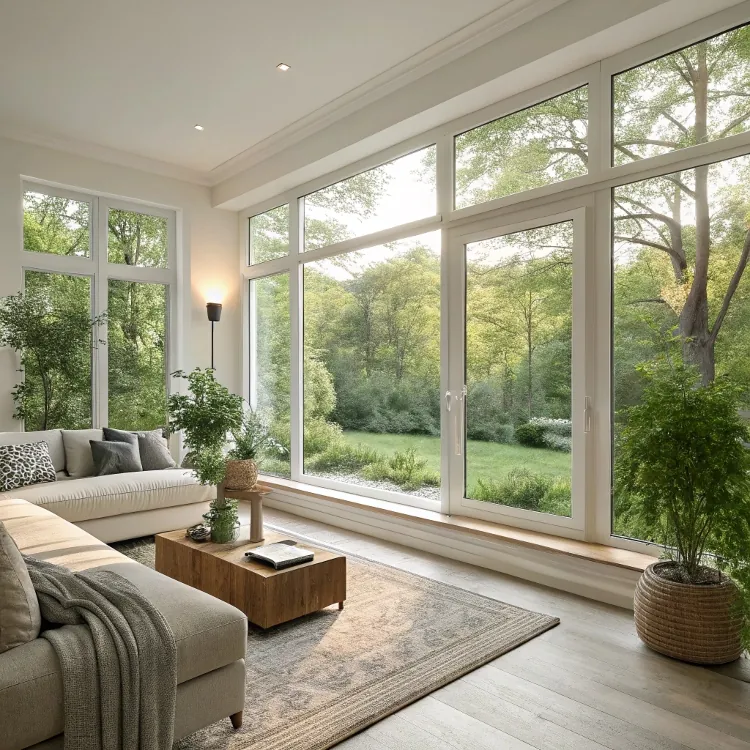
When it comes to choosing the right material for window frames, the decision often boils down to two popular options: PVC (Polyvinyl Chloride) and aluminum. Both materials come with distinct advantages and some downsides. But which one is truly better?
PVC and aluminum windows each offer unique benefits depending on what you’re looking for. PVC windows are typically more energy-efficient, while aluminum windows offer a sleek, modern look and superior durability.
Transitioning into this comparison, it’s important to understand the factors that influence window frame choices, such as energy efficiency, durability, cost, and aesthetic preferences. Let’s dive deeper into these aspects.
Which is better, PVC or aluminum?
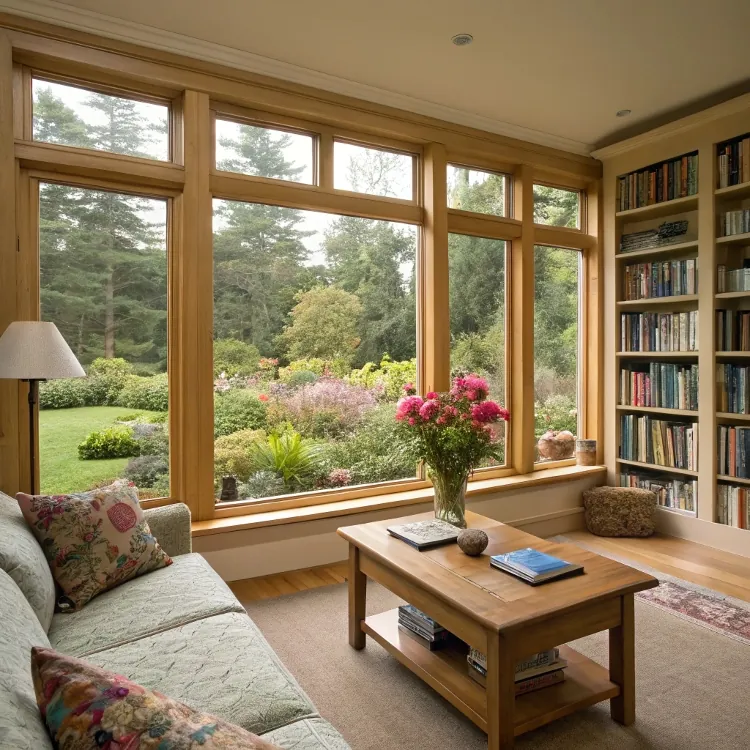
When deciding between PVC and aluminum windows, several key factors come into play. PVC is known for being highly energy-efficient and cost-effective. It has natural insulating properties, helping to keep homes warm in the winter and cool in the summer. On the other hand, aluminum windows provide a more modern aesthetic, with slimmer frames and greater strength, making them ideal for larger windows or those requiring higher levels of durability.
Durability and Maintenance
Aluminum windows excel when it comes to durability1. The material is resistant to the elements and can handle extreme temperatures better than PVC. Aluminum does not expand or contract as much with temperature changes, which means it’s less prone to warping or cracking. PVC windows, while durable, can become brittle over time and may not hold up as well in areas with extreme weather conditions.
Energy Efficiency
PVC is the better choice for insulation. It has a higher level of thermal efficiency, which can help to lower energy costs in the long run. This makes PVC a popular choice for homes located in climates with extreme temperatures. However, aluminum windows have an insulating core to improve energy efficiency, but they typically fall short of PVC when it comes to preventing heat transfer.
Aesthetics
If you’re going for a sleek and modern look, aluminum windows often win the aesthetics category. Their slimmer frames create larger glass areas, giving a more contemporary appearance. PVC windows, while available in various colors and finishes, tend to have bulkier frames.
Cost
Cost is another major factor. PVC windows are generally more affordable than aluminum windows. For those on a budget, PVC might be the better option, especially when factoring in installation costs.
Longevity
Aluminum windows have a longer lifespan than PVC windows. The metal’s resistance to the elements ensures that it will remain in good condition for decades. While PVC windows can last for a long time as well, they may need more frequent maintenance as they can discolor or degrade under prolonged exposure to the sun.
Are aluminium or PVC windows better?
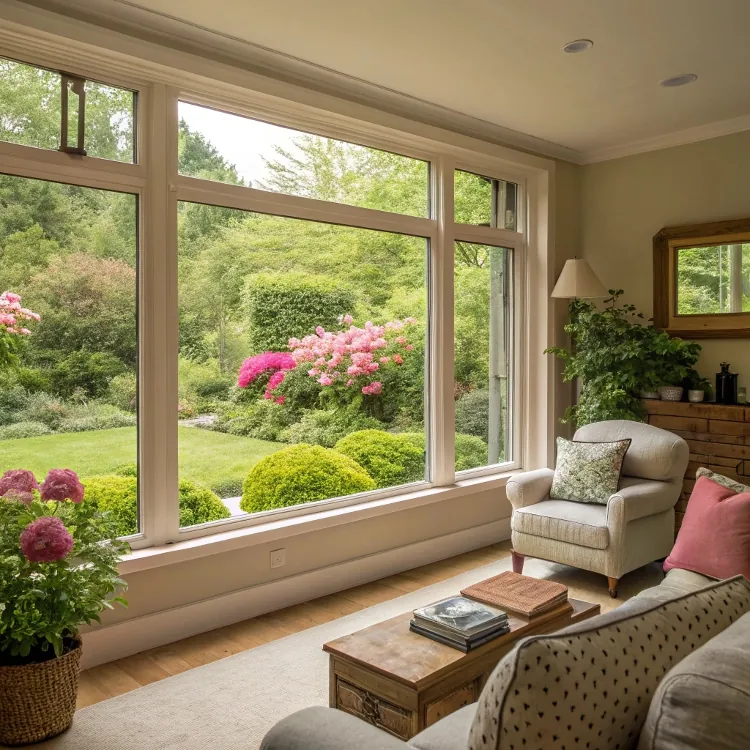
Ultimately, the choice between PVC and aluminum windows depends on your needs. If you prioritize energy efficiency, affordability, and ease of maintenance, PVC windows may be the better option. However, if you’re looking for a more durable and aesthetically pleasing option, aluminum windows could be the right choice for you.
Environmental Impact
PVC windows are made from plastic, which is not always the most environmentally friendly2 option. Aluminum, on the other hand, is 100% recyclable. If sustainability is a priority for you, aluminum may be the more eco-friendly choice.
Strength and Security
Aluminum frames are stronger and can offer better security, especially for larger windows. PVC windows2, while strong enough for most residential applications, are not as secure as aluminum and may be more susceptible to break-ins.
What are the disadvantages of PVC window frames?
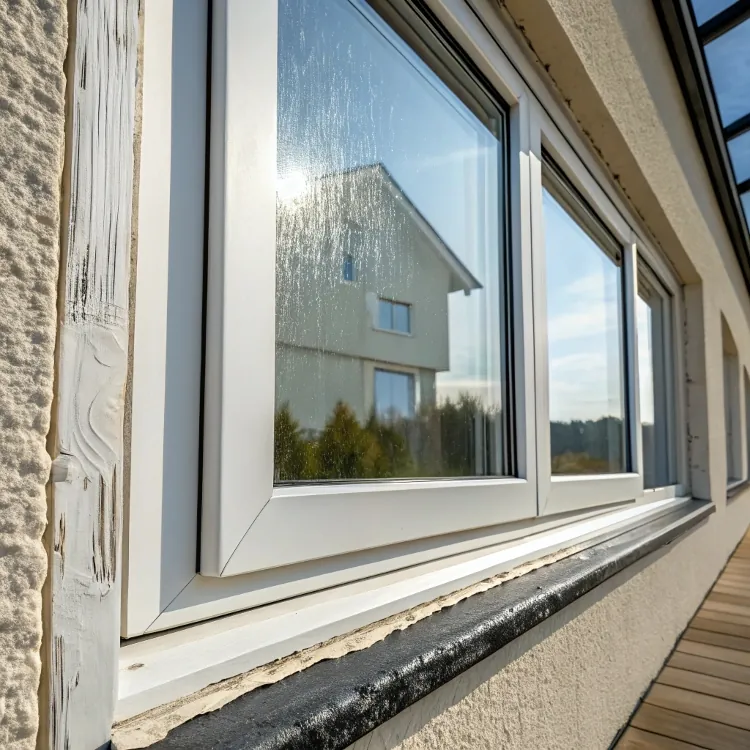
While PVC window frames have numerous advantages, they also come with some drawbacks that should be considered. One of the primary disadvantages is their vulnerability to extreme temperature fluctuations3. In very hot or cold climates, PVC frames can warp, shrink, or expand, which may impact their performance and longevity.
Degradation Over Time
Over time, PVC windows can degrade, especially when exposed to UV rays. This can cause the material to fade, become brittle, or develop cracks. While some modern PVC windows have UV-resistant coatings, they are still more susceptible to wear and tear compared to aluminum.
Limited Aesthetic Options
PVC windows are often thicker than aluminum windows, which can restrict design options. For those who want slimmer, more stylish frames, PVC may not provide the aesthetic flexibility that aluminum can. Additionally, the color options for PVC are limited compared to the variety of finishes available for aluminum.
Insulation and Condensation Issues
While PVC windows are highly insulated, in some cases, they can cause condensation to form between the glass layers if the seals fail. This can be a major issue if the windows are not properly maintained.
What is the disadvantage of aluminum windows?
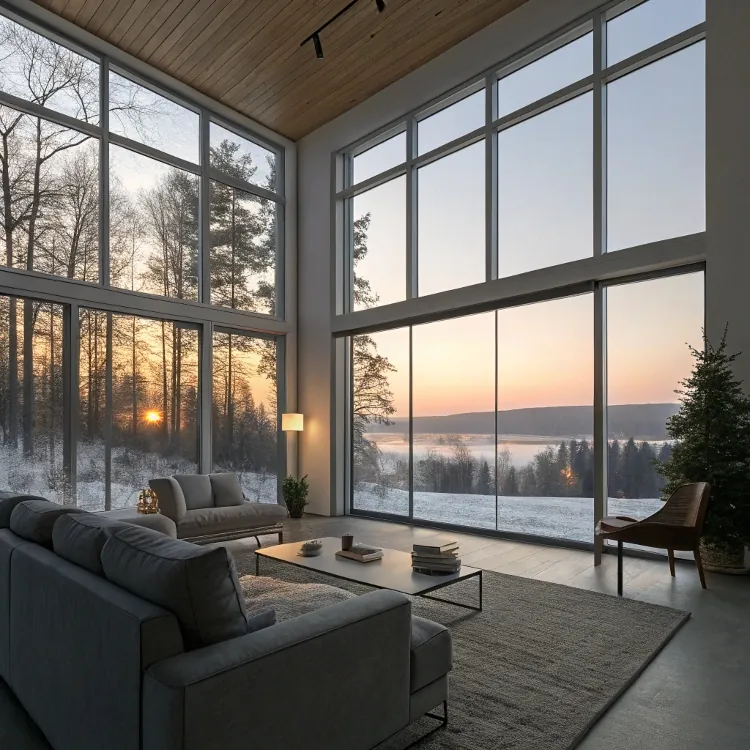
While aluminum windows offer many benefits, they are not without their drawbacks. The most significant disadvantage of aluminum windows is their lower energy efficiency compared to PVC.
Poor Insulation Properties
Aluminum is a poor insulator, meaning it can allow heat to escape or enter a home more easily than PVC. Without proper thermal breaks and insulation, aluminum windows can contribute to higher energy bills, particularly in homes located in extreme climates. To address this, many modern aluminum windows come with an insulated core or thermal break to improve their efficiency.
Higher Cost4
Aluminum windows are generally more expensive than PVC windows, both in terms of material cost and installation. For homeowners on a budget, the higher upfront cost of aluminum windows can be a significant disadvantage.
Susceptibility to Corrosion
Although aluminum is durable, it can be susceptible to corrosion, particularly in coastal areas with high humidity and salt in the air. Over time, the frames may develop oxidation, which can lead to a dull appearance and reduced strength. However, regular maintenance and proper coatings can minimize this issue.
Conclusion
Choosing between PVC and aluminum windows ultimately depends on your priorities. If you’re looking for energy efficiency, cost-effectiveness, and low maintenance, PVC may be your best option. But if you prefer durability, strength, and a modern aesthetic, aluminum could be the better choice.
-
This resource will provide insights into the durability of both materials, helping you make an informed choice for your home. ↩
-
Explore the advantages of PVC windows, including energy efficiency and maintenance, to see if they fit your needs. ↩ ↩
-
Understanding how temperature affects PVC frames can help you make informed decisions about their use in different climates. ↩
-
Exploring the cost differences can help you budget effectively for your window replacement or installation project. ↩



